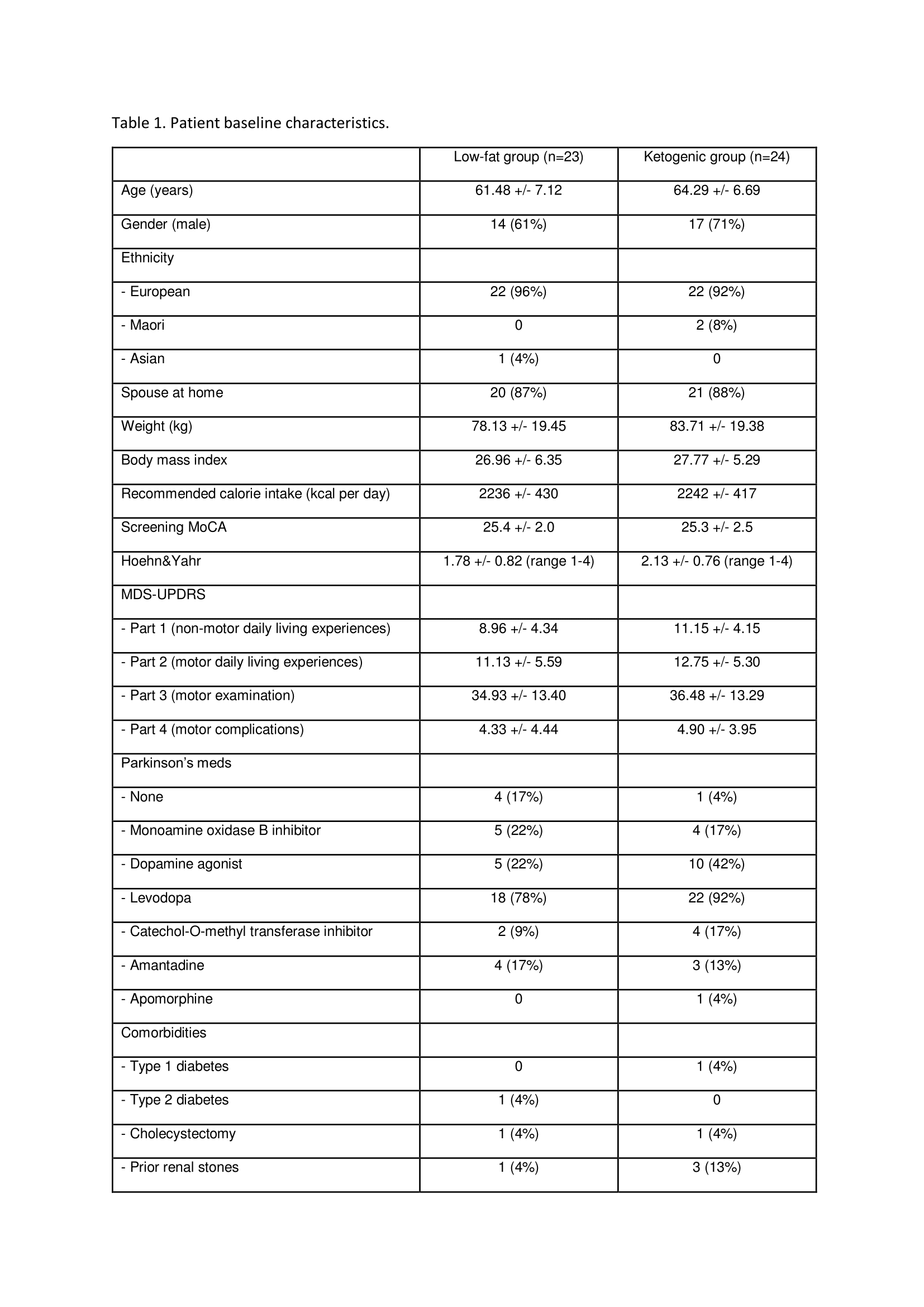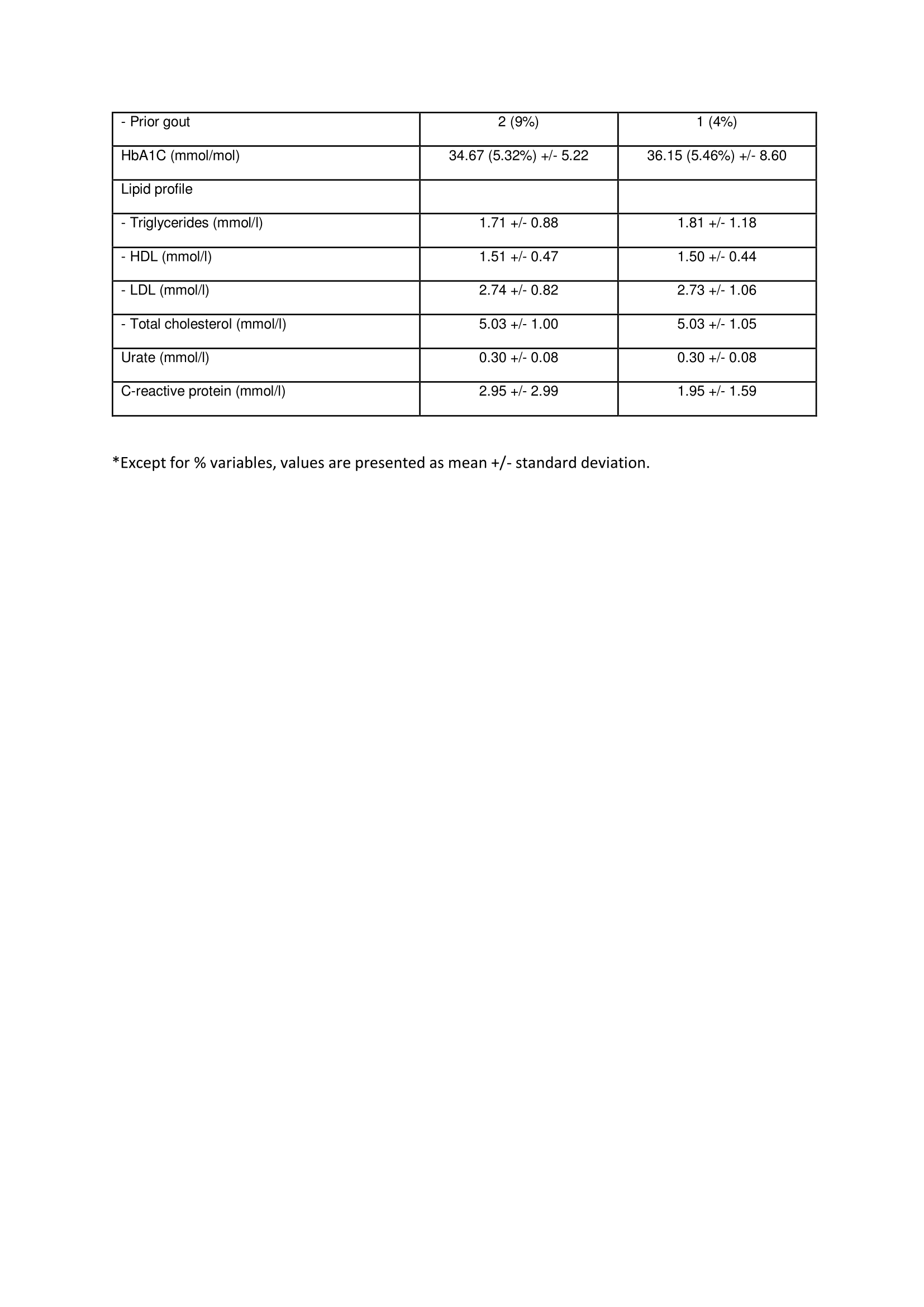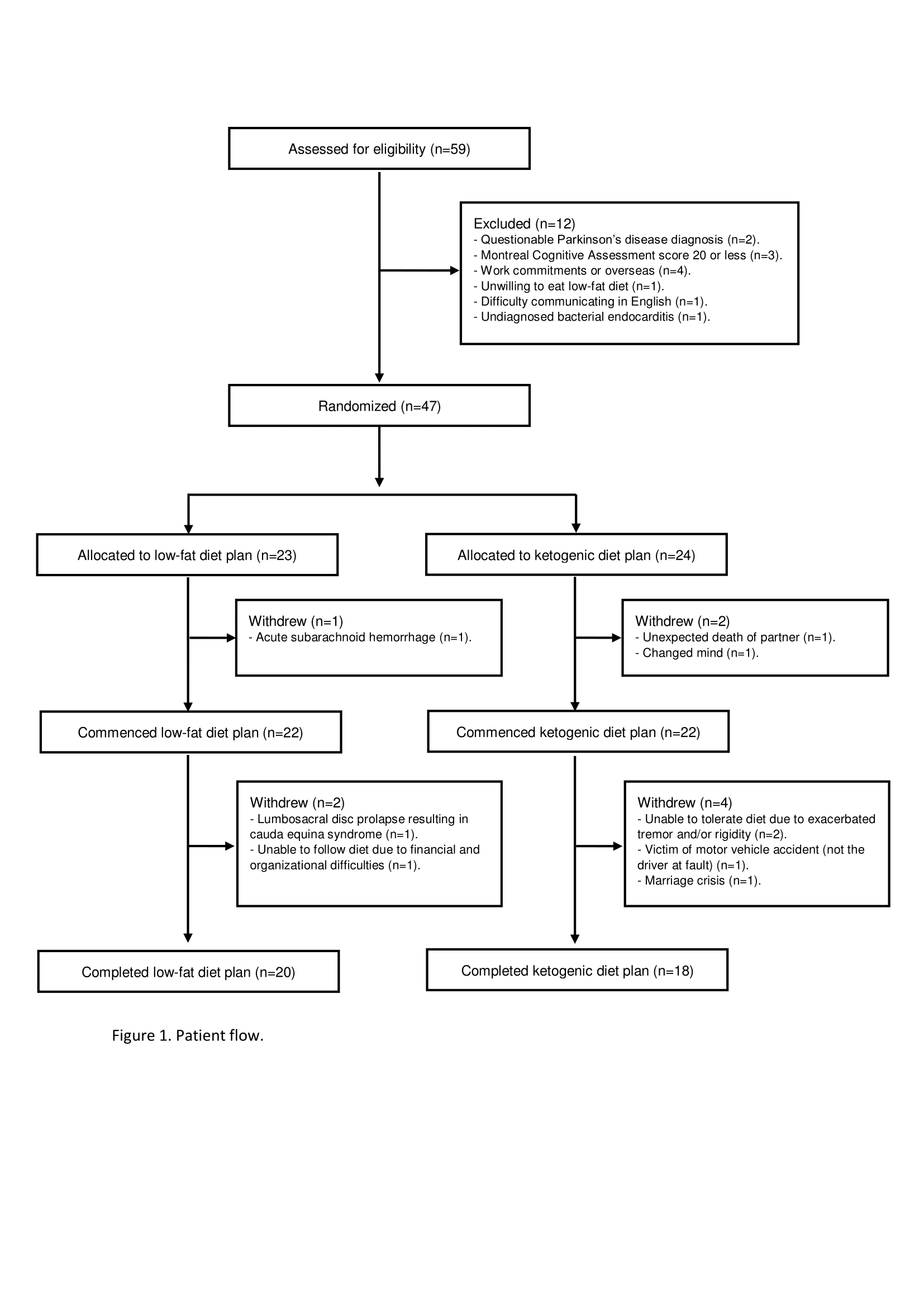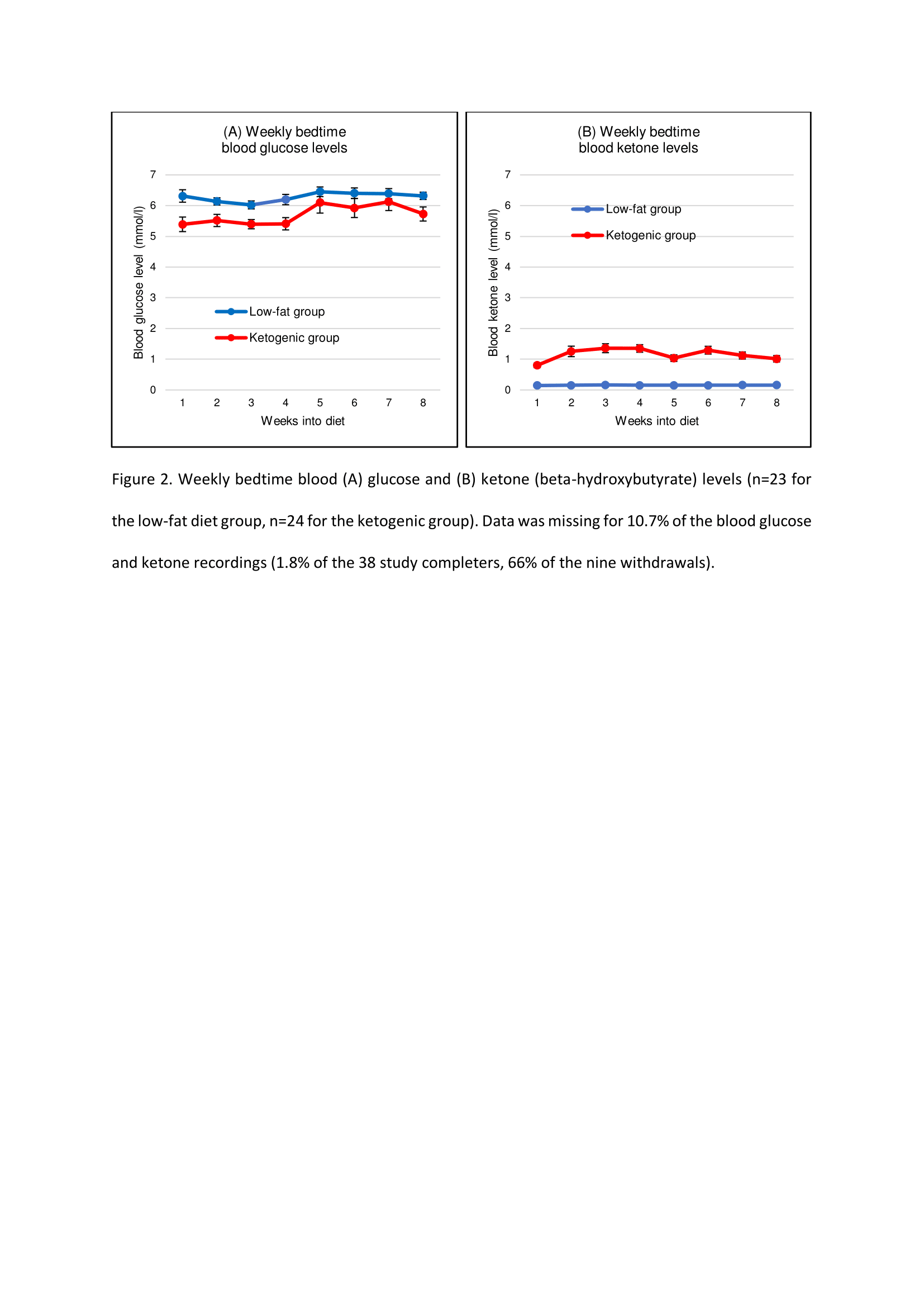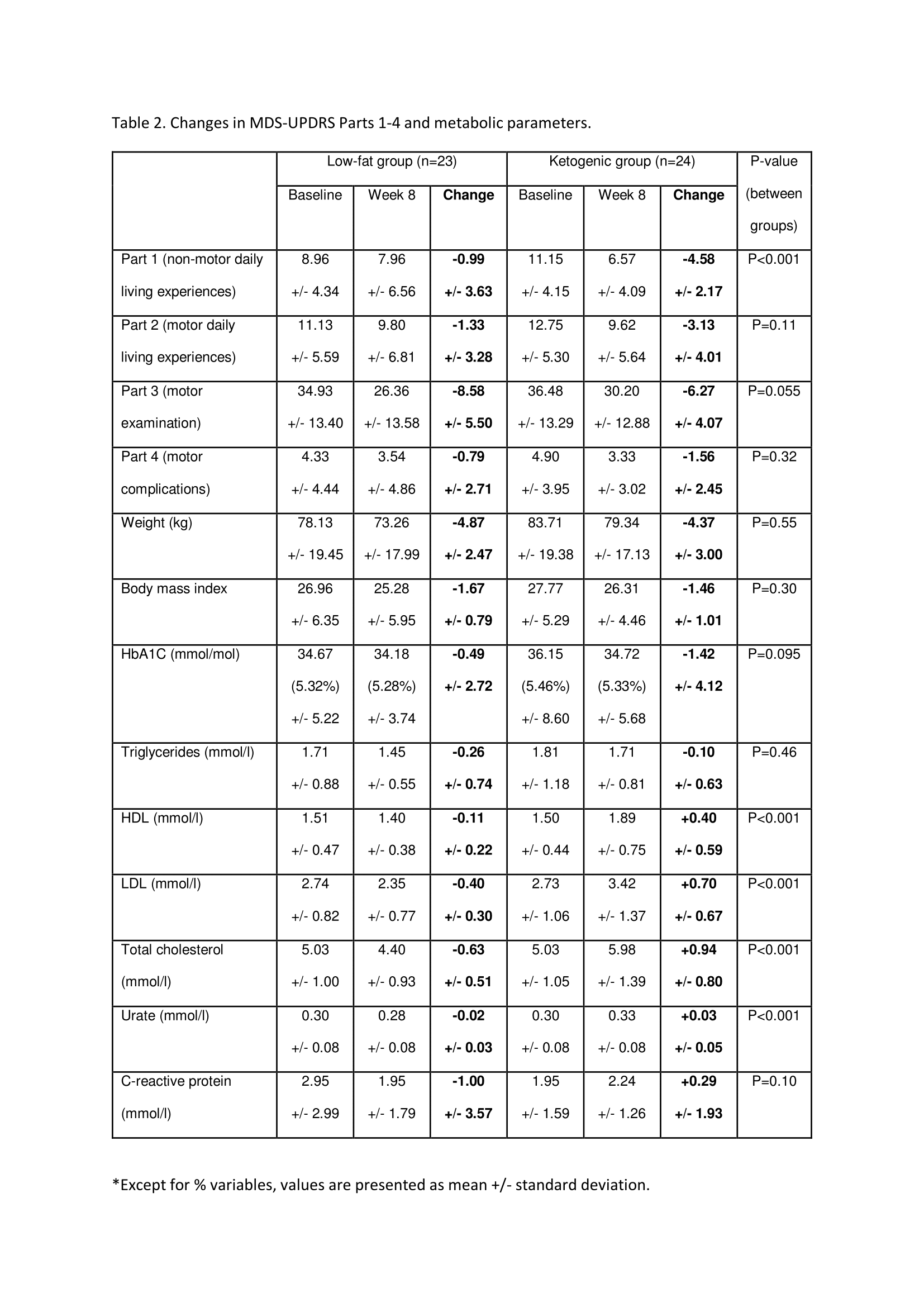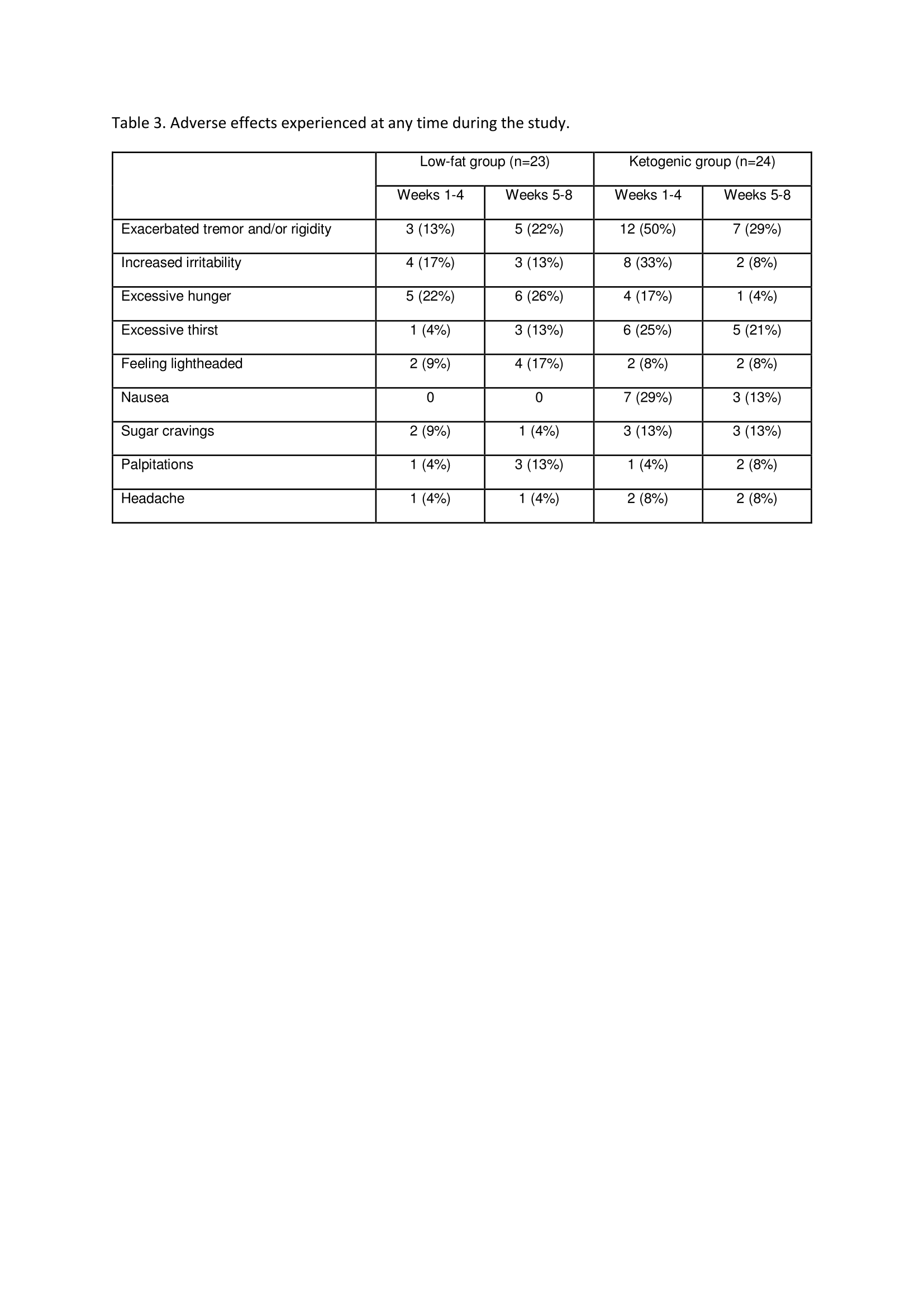Session Information
Date: Saturday, October 6, 2018
Session Title: Clinical Trials and Therapy in Movement Disorders
Session Time: 1:45pm-3:15pm
Location: Hall 3FG
Objective: To compare the plausibility, safety, and efficacy of a low-fat, high-carbohydrate diet versus a ketogenic diet in a hospital clinic of PD patients.
Background: Preliminary evidence suggests that diet manipulation may influence motor and non-motor symptoms in PD, yet conflict exists over the ideal fat to carbohydrate ratio. A low-fat, high-carbohydrate diet may trigger an insulin-induced rise in brain dopamine and enhance beneficial short chain fatty acid production in the gut. Alternatively, a high-fat, low-carbohydrate “ketogenic” diet produces ketones that may bypass the respiratory chain complex 1 defect and stimulate mitochondrial biogenesis in central and peripheral neurons.
Methods: Single-phase, parallel-group 1:1 randomization study of 47 patients (aged 40-75 years, fulfilling UK PD Brain Bank criteria) to either a low-fat (per 1750 kcal – 42 g fat, 75 g protein, 246 g net carbohydrate, 33 g fiber) or ketogenic (152 g fat, 75 g protein, 16 g net carbohydrate, 11 g fiber) diet for eight weeks. Patients monitored blood glucose and ketones daily. Primary outcomes (assessed by an MDS-certified, diet-blinded neurologist) were within- and between-group changes in MDS-UPDRS Parts 1-4 from baseline to week 8.
Results: There were no between-group differences at baseline (Table 1). We randomized 47 patients; there was an 86% completion rate for patients commencing the diets (Figure 1). The ketogenic group maintained physiological ketosis (Figure 2). Both groups significantly decreased their MDS-UPDRS scores, but the ketogenic group decreased more in Part 1 (-4.58 +/- 2.17 vs -0.99 +/- 3.63 points, P<0.001), with the largest between-group decreases observed for urinary problems, pain, fatigue, daytime sleepiness, and cognitive impairment; there were no between-group differences for Parts 2-4 (Table 2). The most common adverse effects were excessive hunger in the low-fat group and a transient, intermittent exacerbation of the PD tremor and/or rigidity in the ketogenic group (Table 3).
Conclusions: It is plausible and safe for PD patients to maintain a low-fat or ketogenic diet for eight weeks. Both diet groups significantly improved in motor and non-motor symptoms, however the ketogenic group showed greater improvements in non-motor symptoms (41% vs 11% reduction in baseline Part 1 scores). Adverse effects were generally mild and differed between the two groups. *Presented at NANZ (Nov 2017) and ANZAN (May 2018).
To cite this abstract in AMA style:
M. Phillips, D. Murtagh, L. Gilbertson, F. Asztely, C. Lynch. Low-Fat Versus Ketogenic Diet In Parkinson’s Disease: A Pilot Randomized Controlled Trial [abstract]. Mov Disord. 2018; 33 (suppl 2). https://www.mdsabstracts.org/abstract/low-fat-versus-ketogenic-diet-in-parkinsons-disease-a-pilot-randomized-controlled-trial/. Accessed February 7, 2026.« Back to 2018 International Congress
MDS Abstracts - https://www.mdsabstracts.org/abstract/low-fat-versus-ketogenic-diet-in-parkinsons-disease-a-pilot-randomized-controlled-trial/

